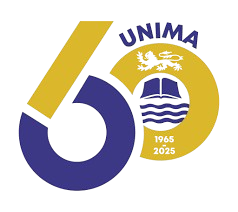Economics Students engage with Reserve Bank experts
Students at the University of Malawi gain skills and diverse knowledge from various experts affiliated with well-known institutions, including both government and non-governmental organizations, through the societies to which they belong on campus.
On 4th April 2025, the University of Malawi Economics Society undertook an educational visit to the Reserve Bank of Malawi (RBM) in Lilongwe. The primary objectives of the visit was to gain a deeper understanding of the RBM’s role in managing the country’s money supply, overseeing currency auctions, and fulfilling its regulatory responsibilities — specifically the registration and supervision of financial institutions operating in Malawi.
The visit also covered the functions of the RBM’s Special Unit for Mineral Purchases and the bank’s collaboration with international financial institutions such as the World Bank and the International Monetary Fund (IMF).
Upon arrival, the Economics society was warmly welcomed by Mr. Muopeni Ngwalo, the Manager of Currency Planning and Policy, who hosted the delegation for an introductory session in the RBM’s auditorium, which lasted approximately 30 minutes. Following this, the students were escorted to the RBM’s Clubhouse, where the main presentations and interactive engagements took place. These included detailed briefings by various department representatives and open discussions that allowed students to ask questions and gain insights directly from RBM officials.
Students appreciated the visit and the lessons they received from the experts at the Reserve Bank of Malawi. A third-year Bachelor of Arts in Economics student, Ms. Rejoice Mpinganjira, shared her experience, stating that she had the opportunity to learn how monetary policy is determined, formulated, and implemented by the RBM.
“We also explored currency issues, where we examined some of the security features on our banknotes and learned about the penalties for forging money,” she said. “I also had the privilege of learning about inflation targeting and policy-making. Additionally, we were taught how financial institutions are monitored to ensure they comply with regulations while maintaining stability in the financial sector.”
The students were accompanied by their lecturer, Mr. Edward Lemani, and the visit proved to be highly informative and enriching, offering students a valuable opportunity to bridge theoretical economic concepts with practical applications in monetary policy, financial regulation, and international economic cooperation. It was a memorable and fruitful experience for all participants.
The students extended their gratitude to the officials at the RBM for the insightful sessions and the rich, eye-opening experience.




